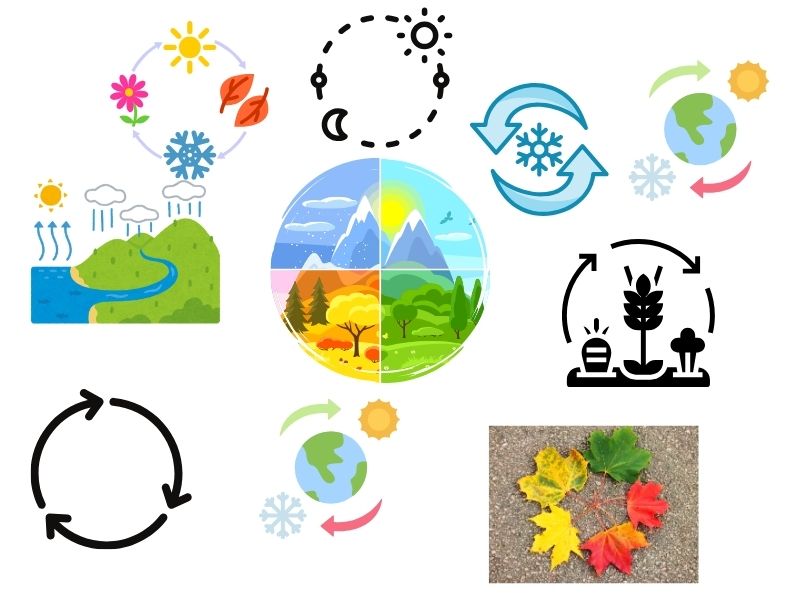Are Seasons Capitalized? Understanding Proper Grammar Rules

The capitalization of seasons—winter, spring, summer, and autumn or fall—often becomes a subject of confusion. Unlike days and months, which are proper nouns, seasons are considered common nouns and follow different capitalization guidelines.
It’s important to note that while seasons are not capitalized in general prose, there are specific instances when they are treated differently. For instance, when seasons are personified in poetry or when they form part of a title, capitalization becomes appropriate.
Capitalization serves not only the purpose of proper formatting in written content but also aids in conveying respect for proper nouns and in distinguishing specific entities from general concepts. Here is a brief overview presented in tables to clarify when seasons need a capital letter and when they do not:
General Capitalization Rules for Seasons
| Do Capitalize | Do Not Capitalize |
|---|---|
| Beginning of a sentence: “Summer is hot.” | General mention: “I enjoy summer.” |
| Titles: “Winter Olympics” | Seasons used generically: “spring flowers” |
Exceptions to the Rule
- Content Titles: In content such as essay titles or book chapters, capitalize seasons (e.g., “The Fall of the Leaf: Autumns in Literature”).
- Personification: When seasons are personified, especially in literary contexts (e.g., “Old Man Winter”).
Rules of Capitalizing Seasons

In English grammar, the capitalization of seasons such as spring, summer, fall (or autumn), and winter typically follows specific capitalization rules. These rules are important for accurate and standardized written communication.
General Capitalization Guidelines
Seasons are generally considered common nouns in the English language and are not typically capitalized. They should remain in lowercase unless they meet certain conditions. Here are the basic principles:
- Seasons are lowercase when used in general contexts.
- Capitalize a season when it starts a sentence or is part of a title.
- When included in proper nouns or titles, such as “Winter Olympics,” they are also capitalized.
Examples:
- “The flowers bloom in spring.”
- “Spring is my favorite season.”
- “The Summer Solstice is the longest day of the year.”
Literary and Personification Exceptions
In literature, rules can bend to accommodate personification or when seasons take on characteristics of a proper noun. Capitalization in these cases lends a sense of personality or distinctiveness to the season.
- Seasons can be personified in poetry or when an author assigns them human-like qualities.
- Names of seasons are capitalized when used in a literary title or as part of a specific work’s title, such as John Steinbeck’s “The Winter of Our Discontent.”
The following table outlines when seasons should be capitalized due to literary usage:
| Literary Context | Capitalization Example |
|---|---|
| Personification within poetry | “In Autumn‘s arms, the leaves find rest.” |
| Part of a literary work’s title | “Fall of Giants” by Ken Follett |
Use the following bullets to remember key exceptions:
- Capitalized when seasons are personified: “Summer shows her warm smile.”
- Capitalized within the titles of literary works: Shakespeare’s “The Winter‘s Tale.”
Hence, while seasons are generally not capitalized, the nuances of English grammar and literary exceptions can make this rule a bit tricky.
Seasons in Specific Contexts
In the realm of grammar, the capitalization of seasons may seem straightforward, but specific contexts can present exceptions. Seasons—spring, summer, fall (also called autumn), and winter—are generally treated as common nouns. As such, they are not typically capitalized. However, in certain contexts, these guidelines shift.
Seasons are capitalized when they fulfill certain roles within a sentence:
- If a season is the first word of a sentence, it requires capitalization.
- When used in titles, seasons follow title capitalization rules.
- In poetry or when personified, seasons may be capitalized to emphasize their portrayal as characters.
In contrast, during regular use, seasons are written in lowercase. The English language considers days and months of the year as proper nouns, thus they are always capitalized. Seasons do not share this classification.
The following tables illustrate when to capitalize seasons:
Table 1: Standard Rules
| Context | Capitalization Required? |
|---|---|
| General use | No |
| Start of a sentence | Yes |
| Within a title | Yes |
| As proper nouns | No |
Table 2: Special Cases
| Context | Capitalization Required? |
|---|---|
| In a poem | Sometimes |
| When personified | Yes |
To summarize, while seasons capitalized appear occasionally, such instances are the exceptions, not the rule. One must assess the context to determine proper capitalization.
Conclusion and Best Practices
In education, clarity and correctness are paramount. When teaching about the capitalization of seasons, there’s a straightforward guideline: seasons are common nouns and are generally not capitalized. However, there are specific instances that require their capitalization to maintain proper grammatical standards.
Below are two tables outlining when to capitalize seasons:
Table 1: Instances That Require Capitalization
| When to Capitalize | Description |
|---|---|
| Sentence Start | When a season is the first word in a sentence. |
| Titles | Within titles of books, articles, or essays. |
| Proper Nouns | Part of a proper noun phrase like “Winter Semester 2023”. |
| Personification | When seasons are personified in creative writing. |
Table 2: Instances That Do Not Require Capitalization
| When Not to Capitalize | Description |
|---|---|
| General Use | In the middle of sentences when speaking about seasons in general terms. |
| Non-personified | When not specifically personified in poetry or metaphorical language. |
| Non-titled | Not part of titles or at the beginning of sentences. |
For educators, it’s beneficial to incorporate bullet points to emphasize key practices:
- Always review the rules of capitalization with students.
- Engage students with examples of both correct and incorrect usage.
- Test understanding via worksheets that challenge students to capitalize seasons appropriately.
In conclusion, mastering when to capitalize seasons enhances both written communication skills and grammatical precision. It’s a small yet integral part of the English language that reflects one’s attention to detail and commitment to linguistic excellence.
My name is Khamis Maiouf. I am the creator of the English Teacher Site, dedicated to providing valuable resources and insights for students around the world. With a passion for education and a commitment to helping students enhance their skills, I aim to make English teaching more effective and enjoyable for both educators and students.






